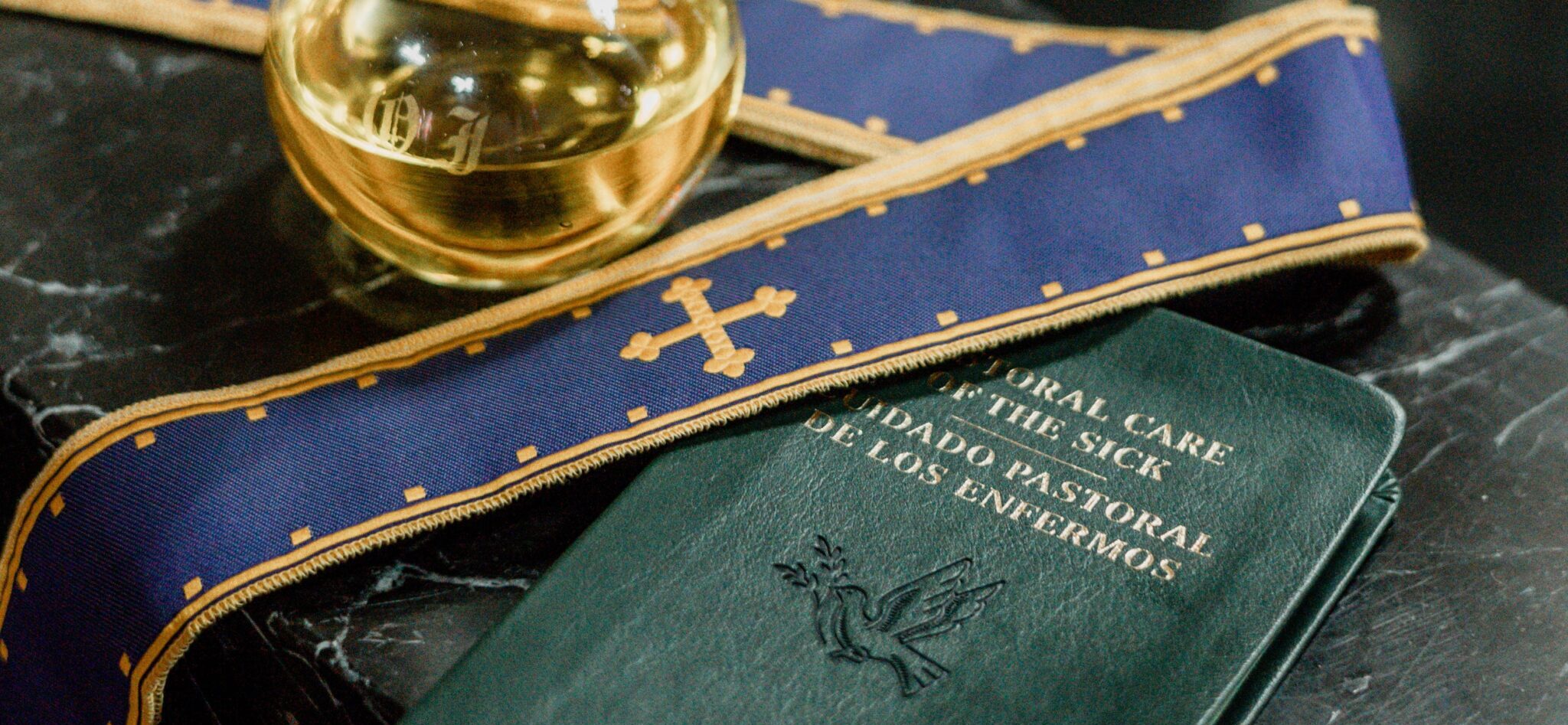Contact Parish Office 703-860-8510
In years when we hear the Gospel according to Mark, the first weeks in Ordinary Time focus on the healing ministry of Jesus. In these readings we are reminded of Jesus’ compassionate concern for the sick and our mission as Church, to serve Christ himself in the suffering members of his Body. We are also reminded of the injunction to seek out Christ in the preeminent sacrament of healing:
Is anyone among you sick? He should summon the presbyters of the church, and they should pray over him and anoint (him) with oil in the name of the Lord, and the prayer of faith will save the sick person, and the Lord will raise him up. If he has committed any sins, he will be forgiven. (James 5: 14-15)
Unfortunately, many people don’t seek the Sacrament of the Sick because they still associate it with “Last Rites,” and view the anointing as something reserved for the deathbed. Nothing could be farther from the truth as Vatican II restored the Anointing of the Sick to its rightful place as a Sacrament of the Living – one in which the gift of the Spirit is a gift of strength, of consolation and of hope. [Note: While anointing is still part of pastoral care to the dying, the last rite is actually communion given asViaticum or “food for the journey.”]
The sacrament itself is a sign of life, the eternal life promised by Jesus Christ, here and now as well as in the future. Christ came to show us how we can have life to the fullest in whatever situation we find ourselves. His Spirit, active and dynamic in our sickness and frailty as well as in our health and strength, is a real presence. The Sacrament of the Sick confirms this abiding presence in a tangible way.
The Church urges all to ask for the sacrament of anointing and, as soon as the right time comes, to receive it with full faith and devotion.
When is the right time?
Persons who can receive the sacrament are those who are seriously ill (due to disease, a wound, etc.), or markedly weakened by old age, even though there is no danger of death. Anointing is also appropriate prior to surgery when a serious illness is the reason for the surgery. Therefore, an appropriate time to receive the sacrament would be the onset or progression of a serious illness or the notable weakening in the condition of an older person.
The Catechism of the Catholic Church states that when the sick are anointed they should be “assisted by their pastor and the whole ecclesial community, which is invited to surround the sick in a special way through their prayers and fraternal attention” (#1516). It is very fitting to celebrate it within the Eucharist.
As a community, we occasionally celebrate the Sacrament of the Anointing of the Sick at the 9:00 AM daily Mass. Additionally, each year during Winter Ordinary time (after the Christmas Season) we also celebrate the Sacrament of the Sick during the Saturday evening and Sunday Masses.
We are all called to join in the Church’s pastoral care of the sick and serve Christ himself in the suffering members of his Body. Such care on the part of the entire community is a concrete realization of the unity of the Body that Paul speaks of: when one member suffers, all the other members suffer with that member (1 Cor 12:26). As baptized Christians, we share in this ministry of mutual love within the Body by doing all that we can to help the sick return to health. This care includes our prayers, our visiting and praying with those who are separated from us by illness and our celebrating the sacraments with them.
Likewise, the sick and suffering minister to the community of faith by their witness. Through them, we are reminded that our response in faith to pain and suffering beyond our control unites us with the sufferings of Christ and, in that very privileged union, we share in the salvation of the world. The intercessory prayers of the sick for the whole church and the entire world are especially efficacious by virtue of this privileged union with the redemptive suffering of Christ. And for this reason, we are encouraged to “offer up” our suffering for the life of the world.

